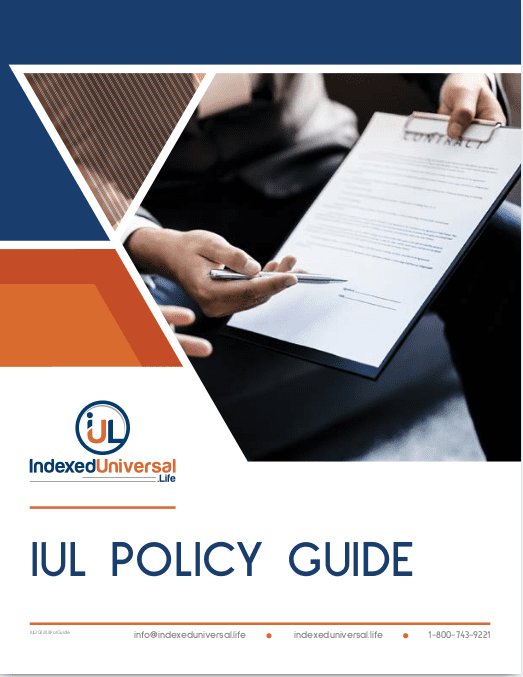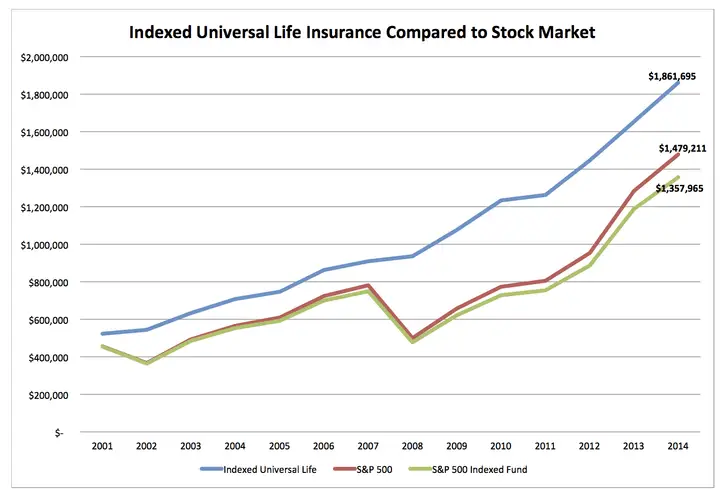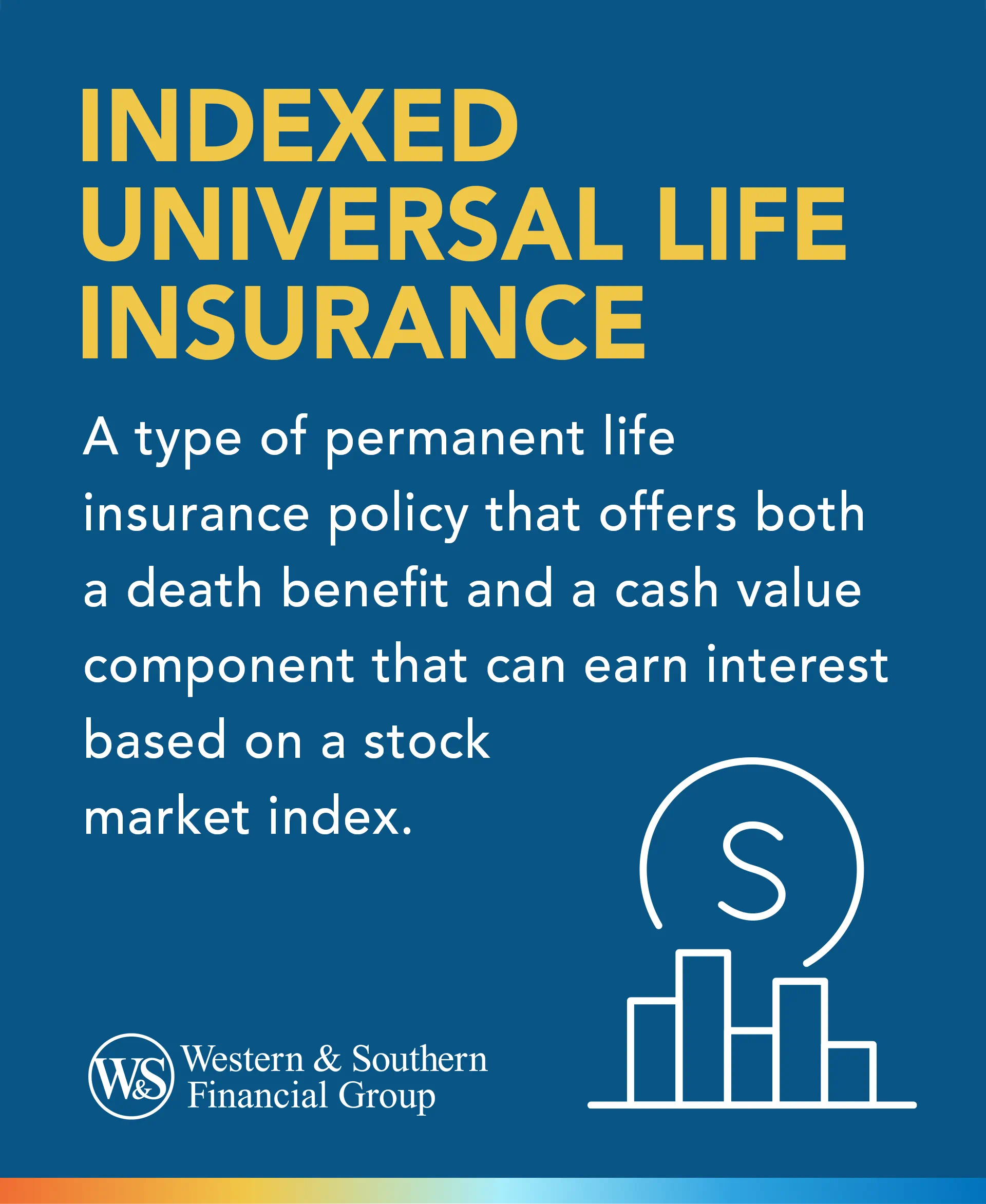All Categories
Featured
Table of Contents
Do they compare the IUL to something like the Lead Overall Supply Market Fund Admiral Shares with no tons, a cost ratio (EMERGENCY ROOM) of 5 basis factors, a turnover proportion of 4.3%, and an outstanding tax-efficient document of circulations? No, they contrast it to some awful actively managed fund with an 8% lots, a 2% EMERGENCY ROOM, an 80% turn over ratio, and an awful document of short-term resources gain circulations.
Common funds frequently make annual taxed distributions to fund owners, even when the value of their fund has actually dropped in worth. Mutual funds not only call for revenue reporting (and the resulting yearly tax) when the shared fund is going up in worth, however can also impose earnings taxes in a year when the fund has actually dropped in worth.
You can tax-manage the fund, harvesting losses and gains in order to lessen taxed circulations to the investors, however that isn't in some way going to change the reported return of the fund. The ownership of common funds might call for the shared fund owner to pay approximated tax obligations (www iul).

IULs are very easy to place to make sure that, at the proprietor's death, the recipient is not subject to either earnings or inheritance tax. The exact same tax obligation decrease methods do not function nearly also with common funds. There are various, usually costly, tax obligation traps associated with the moment purchasing and marketing of shared fund shares, traps that do not apply to indexed life insurance policy.
Possibilities aren't really high that you're mosting likely to undergo the AMT due to your shared fund distributions if you aren't without them. The rest of this one is half-truths at finest. For instance, while it holds true that there is no earnings tax because of your heirs when they acquire the profits of your IUL policy, it is also real that there is no revenue tax obligation because of your beneficiaries when they inherit a shared fund in a taxable account from you.
Is Iul Good For Retirement
There are much better methods to avoid estate tax problems than purchasing financial investments with reduced returns. Shared funds might trigger income tax of Social Safety and security advantages.

The growth within the IUL is tax-deferred and might be taken as tax obligation complimentary revenue via finances. The policy owner (vs. the common fund supervisor) is in control of his/her reportable income, thus allowing them to reduce or perhaps remove the taxes of their Social Safety and security advantages. This is great.
Right here's another very little issue. It's real if you acquire a shared fund for state $10 per share prior to the circulation date, and it disperses a $0.50 distribution, you are after that mosting likely to owe tax obligations (possibly 7-10 cents per share) although that you have not yet had any type of gains.
In the end, it's really concerning the after-tax return, not just how much you pay in taxes. You're also most likely going to have even more cash after paying those tax obligations. The record-keeping demands for owning common funds are substantially much more complex.
With an IUL, one's records are maintained by the insurance provider, copies of yearly declarations are mailed to the owner, and distributions (if any type of) are completed and reported at year end. This is additionally kind of silly. Of program you must keep your tax records in situation of an audit.
Iul Vs Term Life
Hardly a reason to buy life insurance coverage. Common funds are generally component of a decedent's probated estate.
In addition, they go through the hold-ups and expenses of probate. The profits of the IUL policy, on the various other hand, is constantly a non-probate circulation that passes outside of probate directly to one's called beneficiaries, and is therefore exempt to one's posthumous lenders, unwanted public disclosure, or comparable hold-ups and expenses.
We covered this one under # 7, yet simply to recap, if you have a taxed common fund account, you must put it in a revocable trust fund (and even less complicated, utilize the Transfer on Fatality designation) in order to prevent probate. Medicaid disqualification and life time revenue. An IUL can give their proprietors with a stream of earnings for their entire lifetime, no matter how much time they live.

This is valuable when arranging one's affairs, and converting possessions to income prior to a retirement home arrest. Mutual funds can not be transformed in a similar fashion, and are often taken into consideration countable Medicaid properties. This is one more stupid one advocating that poor individuals (you recognize, the ones who need Medicaid, a federal government program for the inadequate, to spend for their assisted living home) need to make use of IUL instead of mutual funds.
Are Iul A Good Investment
And life insurance policy looks awful when compared relatively versus a pension. Second, people that have money to acquire IUL over and beyond their retired life accounts are going to have to be awful at taking care of money in order to ever before qualify for Medicaid to spend for their nursing home costs.
Chronic and incurable health problem biker. All policies will certainly enable a proprietor's simple access to cash money from their plan, often waiving any abandonment charges when such people endure a serious illness, require at-home treatment, or become restricted to an assisted living facility. Common funds do not provide a comparable waiver when contingent deferred sales costs still put on a shared fund account whose proprietor requires to sell some shares to money the costs of such a keep.
Universal Life Insurance Comparisons
You get to pay even more for that advantage (motorcyclist) with an insurance policy. Indexed universal life insurance gives death advantages to the beneficiaries of the IUL proprietors, and neither the proprietor neither the recipient can ever before lose cash due to a down market.
I definitely don't require one after I reach monetary independence. Do I want one? On average, a buyer of life insurance pays for the real cost of the life insurance policy benefit, plus the expenses of the plan, plus the earnings of the insurance policy business.
Top Iul Companies
I'm not entirely certain why Mr. Morais included the entire "you can't shed cash" again right here as it was covered fairly well in # 1. He just wished to duplicate the best selling factor for these points I expect. Once more, you do not lose nominal dollars, but you can shed actual dollars, as well as face severe opportunity cost due to reduced returns.

An indexed universal life insurance policy policy owner might exchange their plan for an entirely various plan without setting off income taxes. A mutual fund owner can stagnate funds from one shared fund firm to one more without marketing his shares at the former (thus setting off a taxable occasion), and buying new shares at the latter, commonly based on sales fees at both.
While it is true that you can exchange one insurance plan for an additional, the factor that people do this is that the very first one is such a terrible policy that also after acquiring a brand-new one and going via the early, negative return years, you'll still appear in advance. If they were sold the right plan the first time, they shouldn't have any need to ever before exchange it and undergo the very early, adverse return years again.
Latest Posts
History Of Universal Life Insurance
Universal Life Insurance With Living Benefits
Accumulation At Interest Option